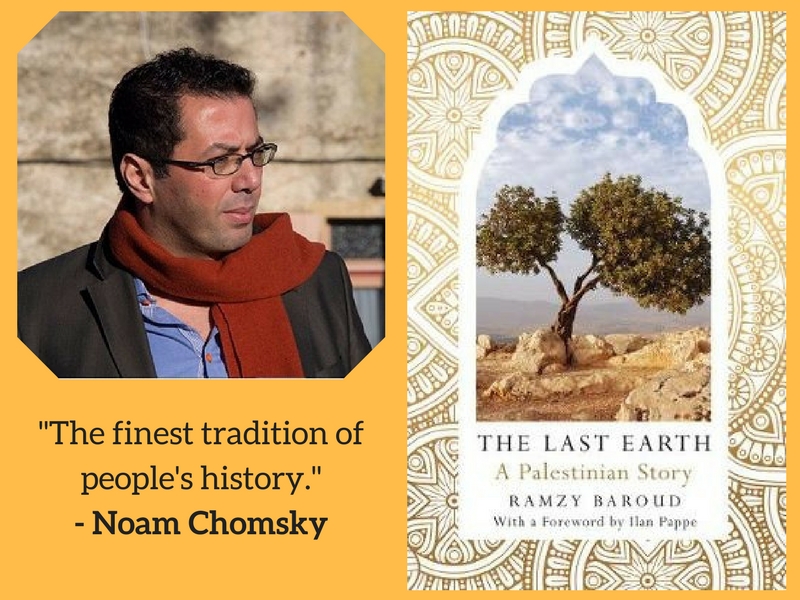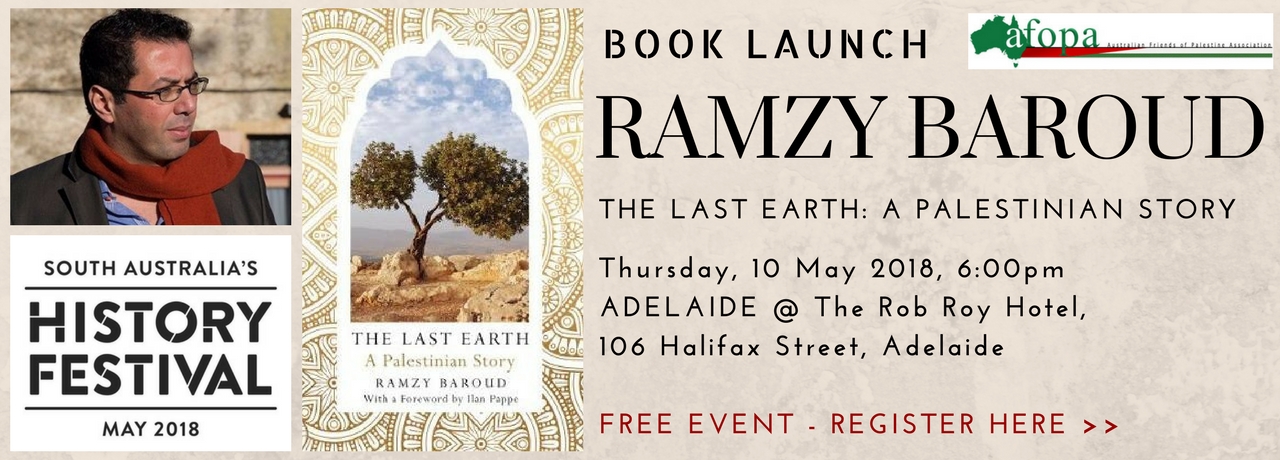AFOPA Book Review
Book Review
The Last Earth: A Palestinian Story
Author: Ramzy Baroud
Publisher: Pluto Press London (2018)
You can tell from the very first pages of this beautiful and timely book that the author brings to the historian’s craft and discipline the background of an accomplished journalist, editor and poet. The language is limpid and expressive. Unlike some historians, Baroud does not commit the crime against history of mistaking objectivity for a coldly alienated quality. He acquaints us early with the fact that his subjects feel love, for one another and for their homeland, Palestine. He speaks to us humanely of their humanity, drawing forth our own, without which the Palestinian question and the drama of exile cannot be understood. Nor does he cowardly shy like some historians from political commitment.
Palestine is at the heart of the soul of every Palestinian, whether in Israel, the Occupied Territories or the diaspora. It is the alpha and omega, the beginning and the end of everything in the Palestinian heart. Khaled, a refugee raised in the camp of Yarmouk in Syria, knowing his heartland from books and tattered maps, nevertheless identifies intrinsically with his homeland, saying 'I am from the village of so and so in Palestine.' The enticingly enigmatic title reflects that Palestine and its satellite realities in the diaspora are the first haven and the last earth of her people.
The book is prefaced by the distinguished Israeli dissident Ilan Pappe, under whom Dr Baroud served his historical apprenticeship at the University of Exeter’s European Centre for Palestinian Studies. The Foreword places the book in historical and historiographical context. Historical perspective generates profound political insights. Pappe cites the early 20th century Italian political philosopher and practitioner Antonio Gramsci, an advocate of cultural revolution for socioeconomic change, to the effect that...
“...cultural resistance is either the rehearsal for political resistance or the means employed when political resistance is not possible. I think both possibilities apply to the Palestinian resistance.”
The function of historical memory is to unify the Palestinian resistance as it survives and grows under oppression. Baroud’s practice of 'history from below' gives voice to the utterances of 'ordinary' working class and dispossessed Palestinians, fusing collective memory into an effective tool of cultural resistance, narrating the past and mapping present ambitions. Given that Israeli oppression has fractured Palestinian political elites and leadership,
“...resistance…unfolds as individual acts enhanced by a strong solidarity of the collective. The oppression is daily and the time miniscule, and so is the resistance. Small gestures, daily heroism, and survival accumulate into a story of sumud, steadfastness.”
Ultimately, resistance is hope: 'Zionism is not a settler colonial project that is going to end with the elimination of the natives. They are here to stay.'
Reviewed by Dr David Faber, Executive Member, Australian Friends of Palestine Association (AFOPA), 25 March 2018


